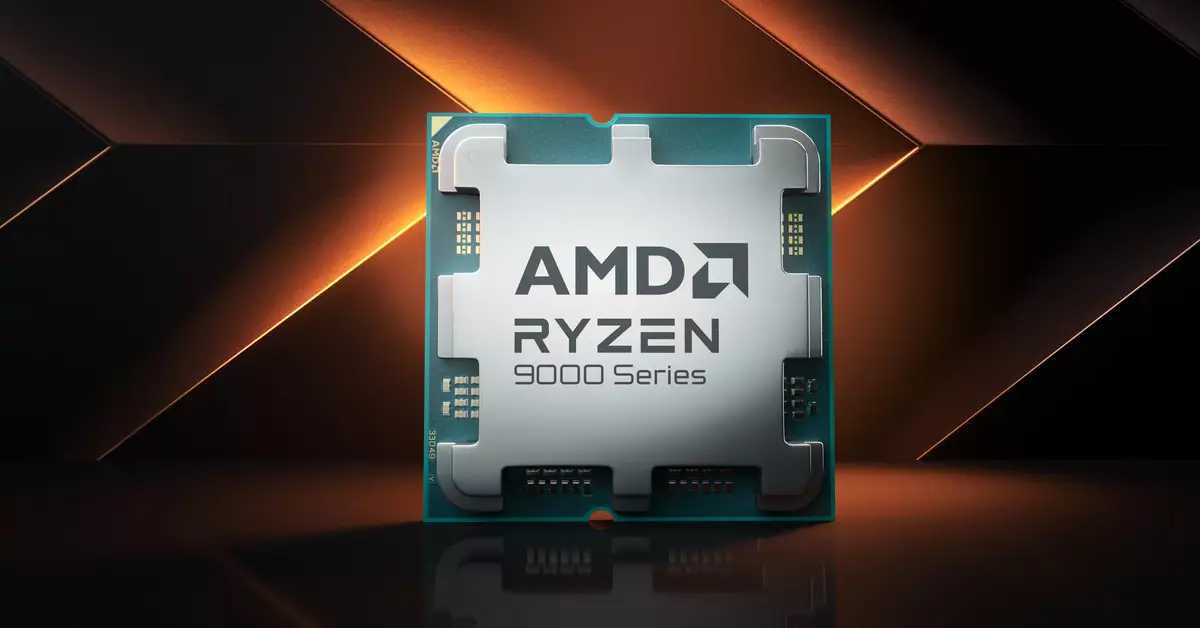The world of desktop processors has continuously evolved, driven by the intense competition between AMD and Intel. Recent developments surrounding AMD’s yet-to-be-announced Ryzen 9000X3D desktop processors reveal a blend of intrigue and disappointment. Reports from an MSI presentation indicate that these new chips might not deliver the revolutionary improvements that many enthusiasts were hoping for, mirroring Intel’s recent Arrow Lake announcements.
Preliminary data about the Ryzen 9000X3D suggests that while there may be some advancements in multi-core performance, the overall gains are marginal. MSI’s presentation highlights that an eight-core 9000X3D could surpass its predecessor, the Ryzen 7 7900X3D, by as much as 28 percent in Cinebench R23. However, this impressive figure could easily be overshadowed by more sobering statistics in gaming contexts. Games like *Black Myth: Wukong* and *Shadow of the Tomb Raider* showed only a meager 2 percent improvement, raising concerns about the processors’ real-world applicability.
What stands out, however, is that the performance of the new X3D models appears strikingly close to that of the base Ryzen 9000 series. Such insignificant enhancements could leave potential buyers questioning whether investing in the new models is worthwhile, particularly given the lukewarm reception of their predecessors.
Market perception plays a crucial role in product adoption. AMD’s Ryzen 9000 series has already been criticized for underperforming relative to expectations. The new X3D models may not significantly alter that narrative, especially if users are weighing their options against competitive offerings from Intel, which has consistently pushed the envelope in terms of innovation and efficiency. The similarities in performance between the new and the existing Ryzen models could deter potential customers who may perceive less value in upgrading their hardware.
The effectiveness of these new processors may also depend on their final retail versions. MSI’s assertion that “performance is expected to be better on PR samples and retail chips” hints at the possibility of a discrepancy between early testing and consumer experiences. If that expectation doesn’t materialize, AMD could face further challenges in regaining consumer confidence.
The leak itself raises pertinent questions about corporate communication and product launches. It is not entirely clear whether the MSI presentation’s inclusion of the Ryzen 9000X3D chips was an inadvertent oversight or a calculated risk. The timing is particularly noteworthy, considering that discussions surrounding Intel’s Core Ultra 200S chips were reportedly under embargo until October 10th. Such leaks create confusion and may adversely affect AMD’s carefully curated launch strategy, particularly if competitors seize on any weaknesses exposed during the rollout.
The Ryzen 9000X3D series represents a pivotal moment for AMD, where the stakes are high, and expectations are tempered. As reviews and real-world performance data emerge, the overall impact of these chips on the market will be closely scrutinized. AMD cannot afford to falter again; consumer loyalty, once a strength, could shorten if the performance does not justify the investment.

